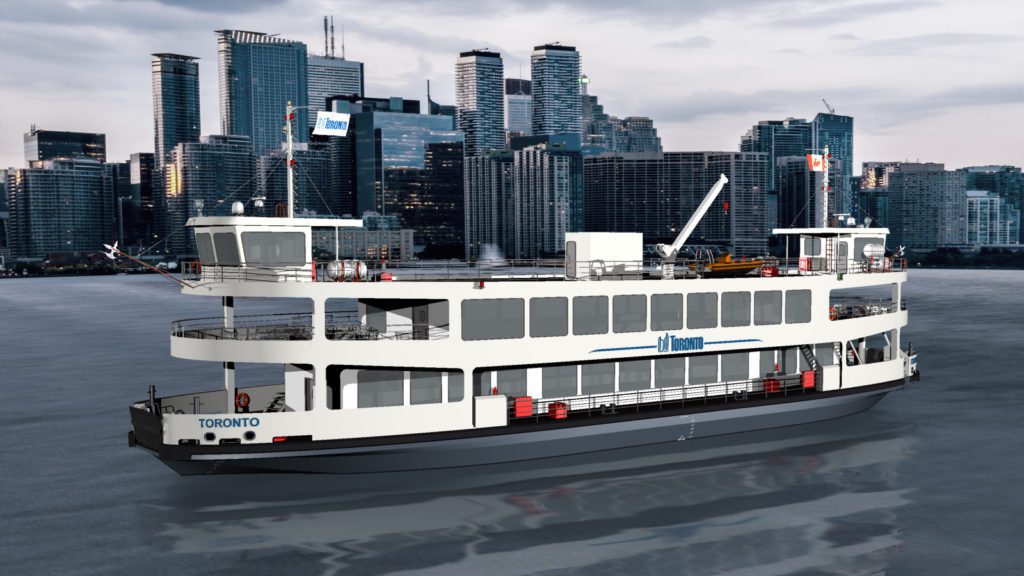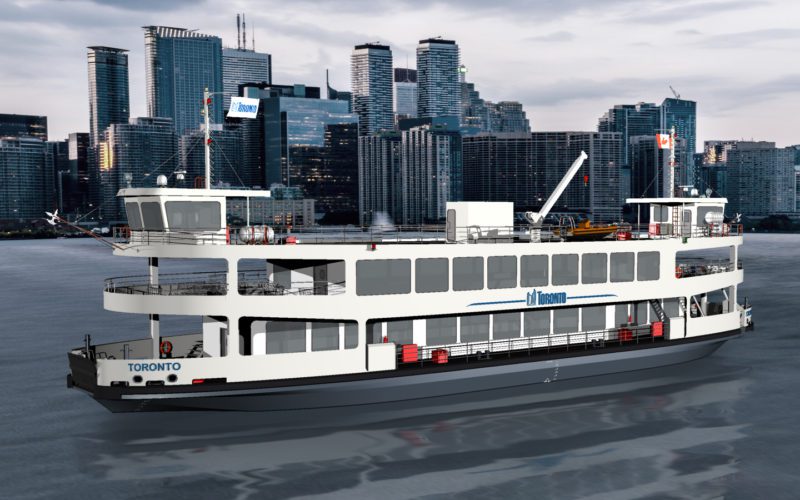(TORONTO) — A new city staff report, recommending a plan to replace Toronto’s current aging fleet of ferries with fully electric vessels, was considered by the General Government and Licensing Committee and adopted without amendment on Jan. 14.
This shift to full electrification supports the city’s TransformTO Net Zero Strategy and commitment to accelerate climate action to achieve net-zero citywide greenhouse gas emissions by 2040. In particular, this initiative aligns with the target of transitioning 20 percent of the city fleet to zero emissions by 2025 and 50 percent by 2030.
The report recommends a plan to replace four existing primary ferries over a 15-year period. The initial ferry replacement strategy proposed a hybrid diesel-electric technology.
Full electrification of the vessel fleet is estimated to reduce 2,800 tonnes of greenhouse gas (GHG) emissions annually, which is equivalent to removing 600 cars from the road every year. In addition, displacing diesel fumes, which contribute to air and noise pollution, will provide an improved ridership experience for those visiting Toronto Island.

Toronto Island Park is served by a ferry fleet of four primary vessels and one heritage vessel, which together transport over 1.4 million passengers and 5,000 vehicles annually to Toronto’s largest park. Although well-maintained, the vessels are between 50 to 100 years old, well beyond the industry average lifespan for similar ferries.
The report, submitted by city staff in Parks, Forestry and Recreation, recommends an increase in funding for the additional design and construction of support services required to advance a fully electric design for the ferries and the required shoreside infrastructure. This change, once the full fleet is replaced, will lead to annual savings of up to $1.1 million, according to the report. The projected payback on full electrification would be within 20 years.
The city’s commitment to TransformTO combined with comparable costing for both vessel types, evolving industry trends and available technologies, fleet replacement approaches being undertaken in other jurisdictions and long-term operational savings (fuel cost savings in particular), all reinforce the upfront transition to fully electric ferries.
Although further cost estimates will be undertaken as the project advances, current estimates for the completed designs range between $23 million and $25 million per vessel. The cost for the fully electric vessels is comparable to hybrid vessels and they will have increased passenger capacity. Additional costs for shore-side infrastructure will be required.
– City of Toronto

